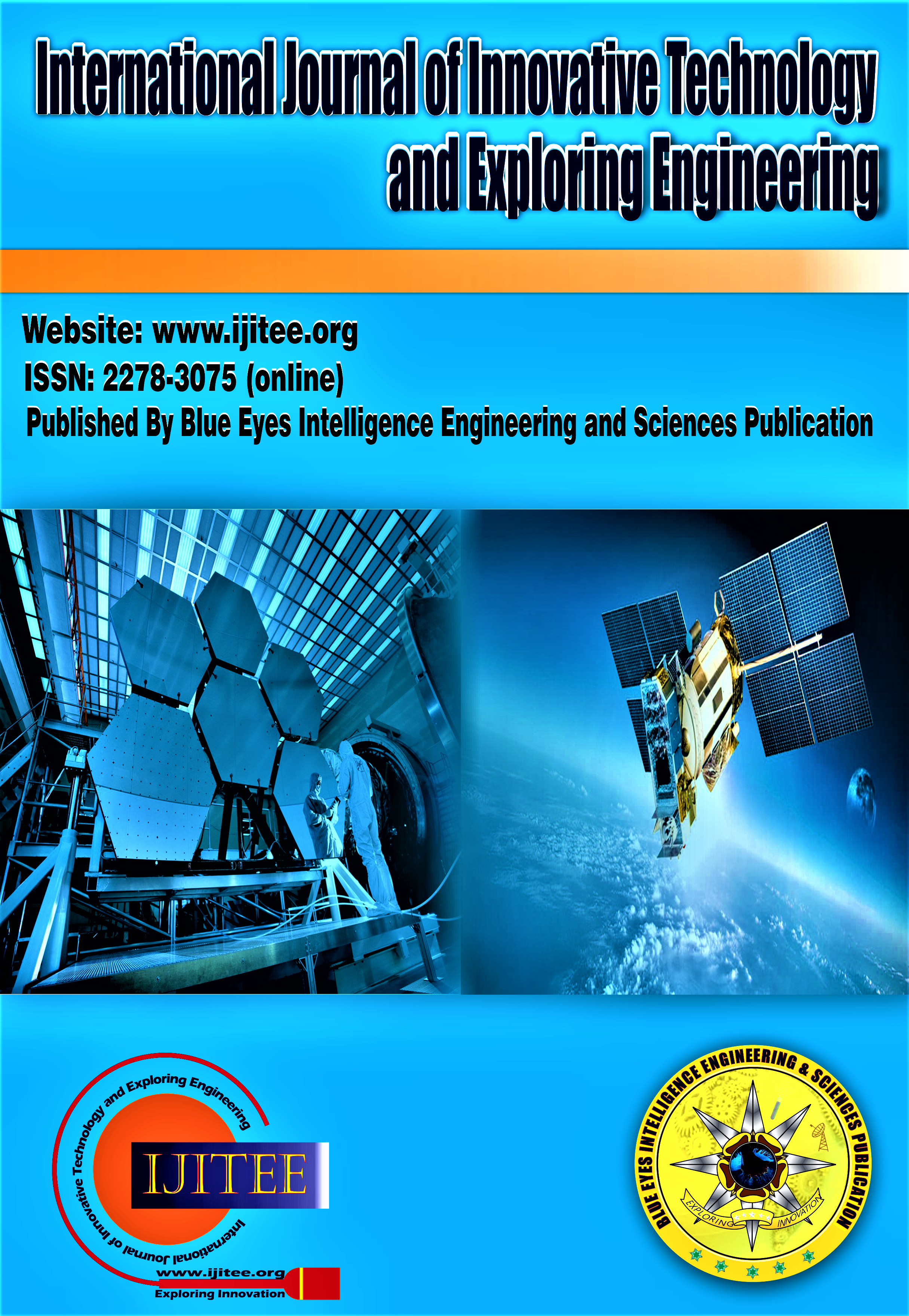Enhanced Ant Colony Based VM Selection and Consolidation for Energy Conservation
Main Article Content
Abstract
Cloud Computing (CC) involves extensive data centers with numerous computing nodes that consume significant electrical energy. Researchers have identified high service-level agreement (SLA) violations and excessive energy consumption (EC) as major challenges in CC. Traditional approaches often focus on reducing EC but tend to overlook SLA violations, particularly when selecting Virtual Machines (VMs) from overloaded hosts. To address these issues, this paper introduces the Enhanced Ant Colony Optimization (EACO) algorithm, aims to reduce high EC and SLA violations by utilizing a unique approach where the best-performing ant explores movement patterns and identifies distances between movements. The algorithm comprises three key steps: tracking pheromone trails, updating pheromones and selecting the cities (VMs). The effectiveness of EACO was validated through simulations using Cloud Sim. Compared to existing techniques, EACO demonstrated a significant reduction in EC, achieving approximately 41-44% lower energy consumption than the traditional Ant Colony Optimization (ACO) algorithm when applied to Planet Lab data. This suggests that EACO offers a more efficient and stable solution for managing EC and SLA violations in cloud environments.
Downloads
Article Details
Section

This work is licensed under a Creative Commons Attribution-NonCommercial-NoDerivatives 4.0 International License.
How to Cite
References
SS Gill, L Chana, M Singh and R Buyya. CHOPPER, “An intelligent QoS-aware autonomic resource management approach for cloud computing”, Cluster Comput. 2018; 21, 1203-41. https://doi.org/10.1007/s10586-017-1040-z
Y Wang, X Tao, F Zhao, B Tian and AMVV Sai, “SLA-aware resource scheduling algorithm for cloud storage” EURASIP J. Wireless Comm. Network. 2020; 2020, 6. https://doi.org/10.1186/s13638-019-1604-0
J Prassanna and N Venkataraman, “Adaptive regressive holt-winters workload prediction and firefly optimized lottery scheduling for load balancing in cloud” Wireless Network. 2019; 27, 5597-615. https://doi.org/10.1007/s11276-019-02090-8
MH Malekloo, N Kara and ME Barachi,” An energy efficient and SLA compliant approach for resource allocation and consolidation in cloud computing environments” Sustainability Comput. Informat. Syst. 2018; 17, 9-24. https://doi.org/10.1016/j.suscom.2018.02.001
M Ranjbari and JA Torkestani, “A learnining automata-based algorithm for energy and SLA efficient consolidation of virtual machines in cloud data centers” J. Parallel Distr. Comput. 2018; 113, 55-62. https://doi.org/10.1016/j.jpdc.2017.10.009
CD Martino, S Sarkar, R Ganesan, ZT Kalbarczyk and RK Iyer,”Analysis and diagnosis of SLA violations in a production SAAS cloud”, IEEE Trans. Reliab. 2017; 66, 54-75. https://doi.org/10.1109/TR.2016.2635033
SK Panda and PK Jana,” SLA-based task scheduling algorithms for heterogeneous multi-cloud environment” J. Supercomput. 2017; 73, 2730-62. https://doi.org/10.1007/s11227-016-1952-z
M Kumar and SC Sharma,” PSO-based novel resource scheduling technique to improve QoS parameters in cloud computing” Neural Comput. Appl. 2019; 32, 12103-26. https://doi.org/10.1007/s00521-019-04266-x
A Ramegowda, J Agarkhed and SR Patil, “Adaptive task scheduling method in multi-tenant cloud computing. Int. J. Inform. Tech” 2019; 12, 1093-102. https://doi.org/10.1007/s41870-019-00389-5
D Komarasamy and V Muthuswamy, “ScHeduling of jobs and adaptive resource provisioning (SHARP) approach in cloud computing” Cluster Comput. 2018; 21, 163-76. https://doi.org/10.1007/s10586-017-0976-3
X Zhou, K Li, C Liu and K Li, “An experience-based scheme for energy-SLA balance in cloud data centers” IEEE Access 2019; 7, 23500-13. https://doi.org/10.1109/ACCESS.2019.2899101
L. Adhianto, ‘‘Optimal online deterministic algorithms and adaptive heuristics for energy and performance efficient dynamic consolidation of virtual machines in Cloud data centers,’’ Concurrency Comput. Pract. Exper., vol. 22, no. 6, pp. 685–701, 2010.
M. Dorigo and L.M. Gambardella, “Ant colony system: A cooperative learning approach to the traveling salesman problem”, IEEE Transactions on Evolutionary Computation, 1997, Volume 1, Issue 1, Pages: 53–66. DOI: 10.1109/4235.585892. https://doi.org/10.1109/4235.585892
G. Sumathi, S.Rajesh, Optimization of Tasks using Scheduling Algorithms in Cloud Computin. (2019). In International Journal of Innovative Technology and Exploring Engineering (Vol. 8, Issue 6S4, pp. 1239–1245). https://doi.org/10.35940/ijitee.f1254.0486s419
Saravanan, A., & Murali, M. (2020). Exploration of Task Scheduling Algorithms in Cloud Computing Environments. In International Journal of Recent Technology and Engineering (IJRTE) (Vol. 8, Issue 5, pp. 4830–4833). https://doi.org/10.35940/ijrte.e6917.018520
Saravanan, N. P., & Kumaravel, T. (2019). An efficient Task Scheduling Algorithm using Modified Whale Optimization Algorithm in Cloud Computing. In International Journal of Engineering and Advanced Technology (Vol. 9, Issue 2, pp. 2533–2537). https://doi.org/10.35940/ijeat.b3813.129219
Jain, N., & Kumar, R. (2022). A Review on Machine Learning & It’s Algorithms. In International Journal of Soft Computing and Engineering (Vol. 12, Issue 5, pp. 1–5). https://doi.org/10.35940/ijsce.e3583.1112522
Sharma, P. (2023). Advancements in OCR: A Deep Learning Algorithm for Enhanced Text Recognition. In International Journal of Inventive Engineering and Sciences (Vol. 10, Issue 8, pp. 1–7). https://doi.org/10.35940/ijies.f4263.0810823





